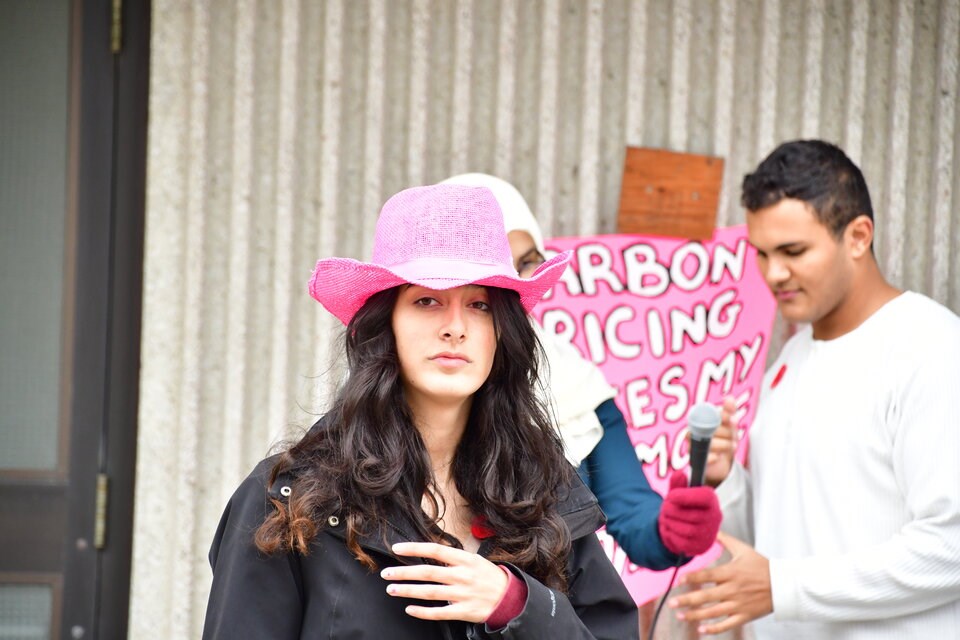An Ontario court case where teens say government climate change inaction threatens their charter right to life and personal security should proceed, B.C. Civil Liberties Association (BCCLA) lawyers argued in court Jan. 15.
Two similar cases are underway in B.C.
The Ontario case dates back to 2019, when Premier Doug Ford's Ontario government quietly rolled back previous climate targets to reduce emissions 37 per cent below 1990 levels by 2030. That was replaced with a single 2030 goal that would lead to the release of about 200 million more tonnes of carbon than under the previous target.
Seven young people, led by 16-year-old Sudbury, Ont., resident Sophia Mathur, challenged the government policy, claiming the resulting climate impacts will harm future generations.
In November 2020, Ontario’s Superior Court said it would hear the case. It was the first time in Canadian history that a court recognized climate change has the potential to violate charter rights, lawyers for the youth say.
However, the court interpreted the claims as “freestanding positive obligations” and found that there was no violation of the charter.
So, the case has wound up in Ontario’s appeal court.
It’s the positive and negative concept of rights that’s the crux of the issue, the BCCLA said.
B.C. lawyer Alison Latimer explained in a 2014 paper that “courts have typically drawn a distinction between negative rights (civil liberties requiring non-interference by the state) and positive rights (socioeconomic rights requiring state action for their realization).
The appeal court will be asked to determine whether or not the government has a constitutional obligation to do something about climate change.
BCCLA lawyer Teagan Markin said viewing claims through the lens of "positive rights" risks allowing the government to avoid constitutional scrutiny, particularly in respect of functions such as health care, social services and climate policy that are closely connected to fundamental rights.
“Canadians are entitled to have their charter rights assessed based on the established law, not assumptions about the government’s constitutional obligations,” Markin said.
Another BCCLA lawyer, Ga Grant, said the use of so-called "negative rights" shields governments from assessments of constitutional rights, particularly when it comes to the social services the more vulnerable rely on.
“Climate justice includes assessing the government’s actions on climate change with the same principles as any other charter challenge,” Grant said.
“Accountability means that the government must not violate Canadians’ rights to equality, life, liberty, and security of the person. Period.”
B.C. litigation
Two similar B.C. cases are underway in the Federal Court of Appeal.
In one, 15 children and youth from across Canada initiated an action against Canada for its failure to address climate change.
They too claimed charter right violations, saying the impacts of climate change “interfere with their physical and psychological integrity and their ability to make fundamental life choices.”
They asserted Canada’s legislative response to climate change has a disproportionate effect on their generation and that they have suffered — and will continue to suffer — the consequences, given their vulnerability and age.
The second case was brought forward by two Wet’suwet’en First Nation groups.
They contend Canada has contributed to climate change in a way that poses a “threat to their identity, to their culture, to their relationship with the land and the life on it, and to their food security.”
They assert the legislative response to climate change exacerbates the threat and violates their charter protections and rights. The contend government inaction has violated the 2015 Paris Agreement on emissions as enshrined in the Canadian Net-Zero Emissions Accountability Act.
In addition, they claimed Parliament violated the Constitution dictum that it make laws for the peace, order and good government of the country.
The Federal Court struck the claims after the federal government contended they were so political that they were not suitable for judicial determination.
However, the Federal Court of Appeal decided the cases could move forward with leave to amend the claim on the grounds the alleged actions are violations of the right to life, liberty and security of the person. The Federal Court of Appeal ruled in December that the Federal Court had erred in presuming that it could not be proven that there was a causal relationship between the climate legislation and the deprivation of the charter rights.
With files from Stefan Labbé

